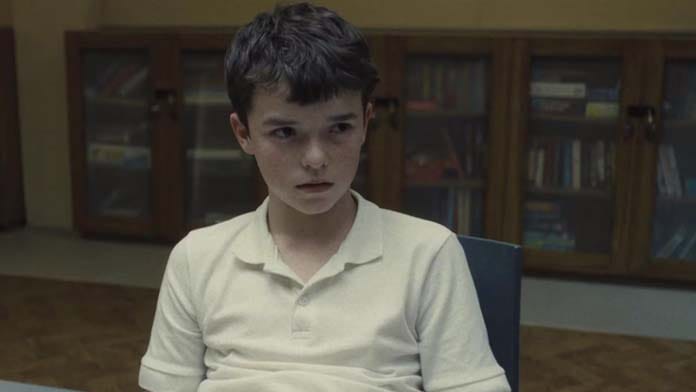Netflix is setting viewing records with Adolescence, a gritty four-part British drama about a 13-year-old working class boy who stabs a girl from his school to death in a car park.
The show is worth watching. Each hour-long episode was filmed in one take, creating an intimate, sometimes claustrophobic but very gripping experience.
Episode three, set in a youth detention centre, sees a psychologically compelling hour-long interaction between Erin Doherty (the psychologist) and Owen Cooper (the 13-year-old Jamie), producing masterful TV.
Adolescence strikes a chord because it depicts the increasing pressures that confront working class communities and families, and the ways that growing economic pressure and cuts to the welfare state are reinforcing sexist gender-roles in family relationships.
An important thread in Adolescence explores how extreme gender-based violence—femicide—is a shocking consequence of the gender inequality and misogynistic stereotypes embedded in the nuclear family.
The show subtly highlights young Jamie’s view of his Mum as weak and irrelevant, and his Dad’s anger problem, having been beaten as a child. We also see Jamie’s Mum consistently trying to placate and mediate the Dad’s emotions. All this rings true.
Adolescence shows the economic pressures on the family, the under-funding of the school and its incapacity to address the real problems students face at home. However, this particular insight is just one of many.
The message that has most widely been taken up is that parents need to police their teen’s use of social media to protect them from misogynistic manfluencers like Andrew Tate, who portray men as victims and coach men and boys on how to dominate women.
But the manfluencers on social media are only a symptom of the more general social backlash against women’s rights seen most dramatically in the Trump policies that remove funding from universities that have diversity programs, ban transgender healthcare, defund schools and consolidate the ban on abortion in many states.
Proposals such as Albanese’s ban on social media access for under-16s leave the underlying social causes of male violence untouched.
The family
In Australia the nuclear family performs an estimated $650 billion annually in unpaid labour (equivalent to half of GDP)—caring, cleaning, cooking—to ensure that workers are regenerated daily to provide the labour that generates the corporate profits.
This unpaid labour is possible only because of imposed, oppressive gender roles that socialise women to feel responsible for the care of the household, children and the elderly, while men are still socialised to be the “bread-winners”.
While they are experienced as deeply private, these gendered roles and family relationships are continually economically and ideologically imposed by the ruling class through the media, the gap between women’s and men’s earnings, and the economics of housing.
Gender-based violence is a direct product of the nuclear family’s reliance on women being socialised to be subordinate and men socialised to be in control.
Add in long work hours, financial stresses and the impossibility of living up to the gender roles and the result can be violence and abuse.
The show’s explanation for Jamie’s capacity to kill is the rage created by feeling humiliated and rejected by his female victim and his resulting violence to control and hurt her.
This depiction of gender-based violence as a rage-fuelled attempt to dominate resonates with the experience of domestic and family violence that resulted in the killing of 69 women in Australia last year.
More profoundly, 39 per cent of women report suffering emotional and physical harm from the controlling and abusive behaviour by partners and ex-partners.
Empower women
Once gender-based violence is located as a product of the capitalist nuclear family, it becomes clearer how we can fight it. Everything that empowers women and removes the pressure on families will help—free quality childcare, more staff in schools to help support children and families, free quality aged and disability care.
Crucially every fight that promotes social equality and women’s economic independence to leave abusive relationships without being thrust into poverty—funding public housing, rent caps, secure jobs, real wage rises—will lessen the incidence of gender-based violence.
The fact that British Labor leader Keir Starmer is slashing social spending while calling for Adolescence to be shown in schools shows how Andrew Tate and social media are used as a cover for the far more significant attacks coming from our rulers.
Adding more pressure on parents to “be it all” for their children, including monitoring their online presence while working ever greater hours, is no solution to the real problems raised in the show. Fixing them will take a fight that goes beyond the symptoms, and attacks the fundamental causes.
By Jean Parker
Adolescence
Directed by Philip Barantini
Screening on Netflix




